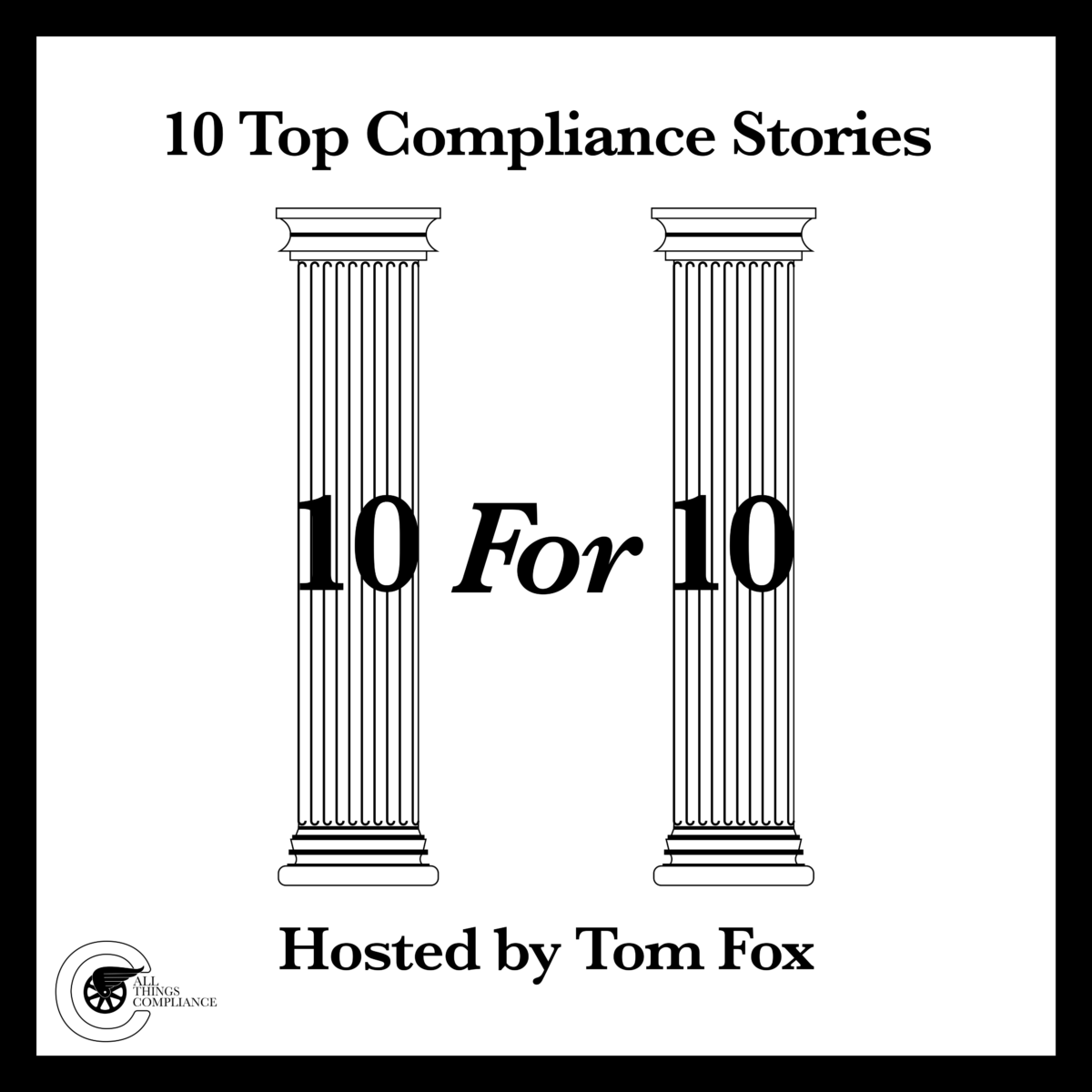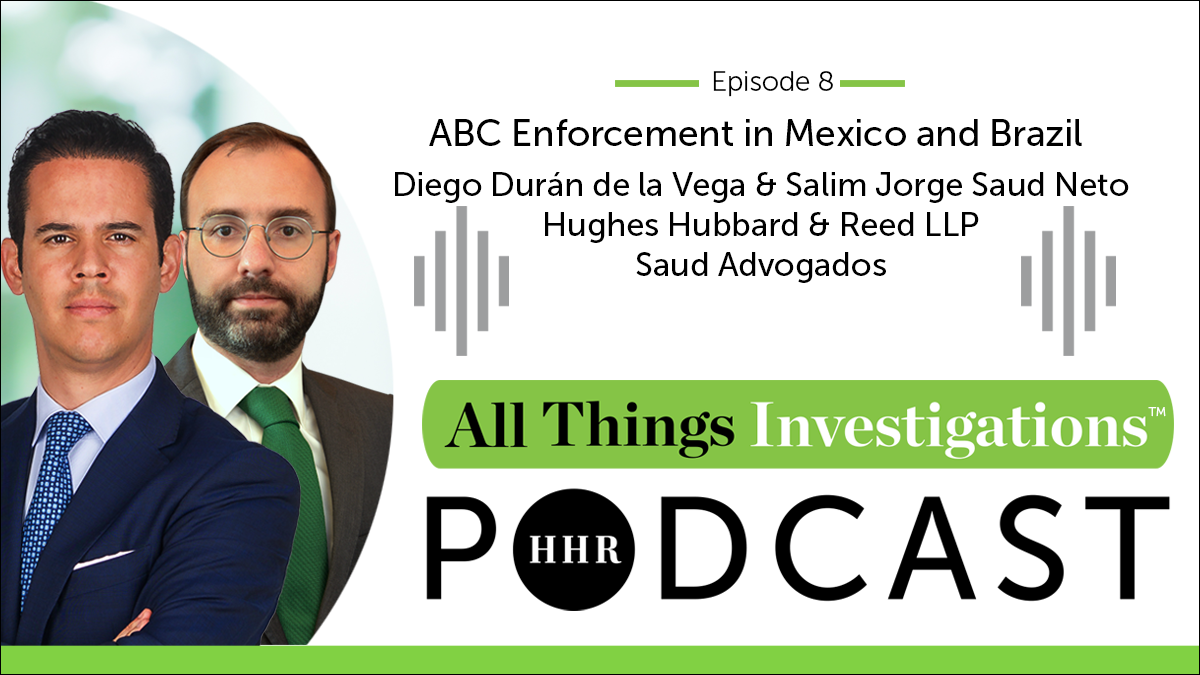To close out 2022 in Foreign Corrupt Practices Act (FCPA) enforcement actions, the Department of Justice (DOJ) and Securities and Exchange Commission (SEC) announced settlements of FCPA enforcement actions with Honeywell UOP, a US-based subsidiary of Honeywell International Inc. For its actions, Honeywell agreed to a criminal penalty of about $79 million, with the DOJ crediting up to $39.6 million of the criminal penalty for Honeywell’s payments to authorities in Brazil in related proceedings. The company agreed to pay the SEC $81.5 million in disgorgement and prejudgment interest and the SEC provided for an offset of up to $38.7 million for payments to Brazilian authorities. Yesterday we laid out the broad outlines of the enforcement action. Today, I want to take a deep dive into the bribery schemes.
Bribery Schemes
1. Brazil and Petrobras
Honeywell’s culture was so corrupt in 2010, when the facts around this matter began, that the business unit dealing with Petrobras could openly lie to the corporate compliance function. As stated in the Deferred Prosecution Agreement (DPA), “On or about May 27, 2010, two Honeywell UOP employees submitted a form requesting that Honeywell’s compliance department approve Brazil Sales Company to serve as Honeywell UOP’s sales agent. To increase the likelihood of receiving internal approvals, the Honeywell UOP employees lied on the request form, stating that Brazil Sales Company had been “known to” Honeywell UOP and a Honeywell UOP employee for two years, when, in fact, the companies had no common history and the Honeywell UOP employee had no prior knowledge of Brazil Sales Company.”
Let’s unpack this for a minute. This is a statement in the DPA, and it speaks to not only how poorly the compliance function was thought of internally but a sales function that openly used lying, cheating and fraud as part of their business practices. But not all blame lies with the business unit as where was the corporate compliance function in their trust but verify role? Apparently non-existent. When you wed a business strategy based on corruption and fraud both internally and externally, you can see where this was headed. By 2010, the corruption rot in Petrobras was well-known literally across the globe and there is no way that the Honeywell compliance function did not know doing business with Petrobras was not high risk.
It was at this early junction that the profit-sharing focus as the basis for the bribe payment was structured, “Honeywell Employee 1 and Intermediary 2 offered to pay Petrobras Official 1 one percent of the expected revenue from the Premium Refinery Contract, or approximately $4 million, in exchange for Petrobras Official 1 using his influence to help Honeywell UOP win the contract. They agreed to use a portion of Brazil Sales Company’s expected three-percent sales commission (approximately $12 million) from Honeywell UOP to pay the $4 million bribe. They also agreed that the remaining $8 million from the sales commission paid to Brazil Sales Company would be divided equally between the Intermediary 1 and Intermediary 2.”
Profit sharing with a cap was the basis for the bribe payment. Capitalism at its finest, only topped by the code name given to the corrupt Petrobras employee, the King. The King provided inside information to Honeywell on pricing and terms which the company used to bring in their bid so it would be the winning bid and Honeywell’s profit sharing with the King could commence.
Just how corrupt (or even more charitably inept) was Honeywell during this time frame? Consider the payment mechanisms outlined in the SEC Order. From 2011 to 2014, the Honeywell “employee responsible for processing the Brazil Agent’s commission payments calculated the Brazil Agent’s commission using numbers from UOP’s invoice and neither asked for nor included an invoice from the Brazil Agent before forwarding the payment request to Honeywell’s accounting group. The payment requests lacked relevant information and when the Brazil Agent changed his company’s name and wanted the commission payments routed to a Swiss bank account in the new company’s name, she forwarded the payment requests without question.” Honeywell was paying from US to Swiss bank accounts to parties with no reported due diligence or even contracts with Honeywell. This was not the compliance function making the payments but corporate accounts payable. Just how big an internal controls failure was this?
3. Algeria and Sonatrach
This bribery scheme involved Honeywell Belgium and the well-known corrupt third-party agent Unaoil. In 2011, Honeywell Belgium hired Unaoil to help facilitate its relationship with Sonatrach. According to the SEC Order, right out of the box, Unaoil officials received “a panicked phone call from the HPS [Honeywell Belgium] Regional GM asking him to make a pass-through payment to a group of people in Europe who purportedly had helped Honeywell Belgium secure a contract with Sonatrach.” Things only got worse from there for Honeywell Belgium. Unaoil, “on behalf of Honeywell Belgium, paid the Sonatrach official $50,000 from a Swiss bank account and an additional $25,000 from the same Swiss bank account on December 28, 2011.”
Thereafter, Honeywell Belgium and Unaoil agreed to a commission structure of 4.5% for contracts landed by Unaoil with Sonatrach with an amount not to exceed $500,000. While no such work was delivered by Unaoil, it billed Honeywell Belgium a lump sum of $300,000 which was approved internally and paid by finance and “falsely recorded as a sales commission. Through a series of intermediary transfers, the Monaco Agent used a portion of the money from Honeywell Belgium to repay the Consultant who had paid the $75,000 in bribe payments to the Sonatrach official. The series of intermediary transfers involved multiple U.S. correspondent banks located in New York. The Monaco Agent admitted that it recorded the payments with internal codes the Monaco Agent sometimes used for bribe payments.”
Join me tomorrow where I conclude with some lessons learned from this final FCPA enforcement action from 2022.








